Εμφάνιση αναρτήσεων με ετικέτα Syria. Εμφάνιση όλων των αναρτήσεων
Εμφάνιση αναρτήσεων με ετικέτα Syria. Εμφάνιση όλων των αναρτήσεων
Σάββατο 18 Νοεμβρίου 2017
Τετάρτη 9 Αυγούστου 2017
Τρίτη 8 Αυγούστου 2017
US sustains military aid to terrorist PKK/PYD in Syria
Related el Kratos:
kurds,
PKK,
PYD,
Raqqa,
support,
Syria,
Terrorism,
Turkey,
United States,
weapons
Commander Slams US for Deliberate Bombing of Iraqi Forces
Related el Kratos:
al Tanf,
artillery attack,
borders,
Hashid al-Shaabi,
Iraq,
Mosul,
Syria,
United States,
victims
UN chief supports embattled Syria commission
Related el Kratos:
Antonio Guterres,
Carla del Ponte,
civilians,
resignation,
Syria,
US-led coalition,
war crimes
Δευτέρα 7 Αυγούστου 2017
Σάββατο 5 Αυγούστου 2017
Iran, EU Oppose Disintegration Plots in Syria, Iraq
Iranian Supreme Leader's top aide for international affairs Ali Akbar Velayati underlined that his country and the European Union are against the plots hatched to disintegrate the regional states, including Iraq and Syria.
Velayati made the remarks in Tehran on Saturday after a meeting with EU foreign policy Chief Federica Mogherini.
Velayati made the remarks in Tehran on Saturday after a meeting with EU foreign policy Chief Federica Mogherini.
Related el Kratos:
European Union,
Federica Mogherini,
independence,
IRAN,
Iraq,
kurds,
referendum,
Syria
Κυριακή 11 Δεκεμβρίου 2016
Syrian Army backed by Russian Air Force thwarts ISIS attack on Palmyra
Related el Kratos:
airstrikes,
ancient Palmyra,
checkpoints,
ISIS,
Russia,
soldiers,
Syria,
Terrorism
Τετάρτη 7 Δεκεμβρίου 2016
Avigdor Lieberman: Israel trying to stop transfer of weapons to Hezbollah
Israeli Defense Minister Avigdor Lieberman said Wednesday that Israel was working to prevent Shiite terror group Hezbollah from smuggling weapons of mass destruction from Syria to its headquarters in Lebanon......EL Kaos UT: Avigdor Lieberman: Israel trying to stop transfer
Παρασκευή 5 Σεπτεμβρίου 2014
Ninety-six percent of Syria’s declared chemical weapons destroyed (UN-OPCW mission chief)
UN, 4 September 2014 – The Special Coordinator for the Joint Mission of the Organization for the Prohibition of Chemical Weapons and the United Nations (OPCW-UN) told the Security Council today that 96 percent of Syria’s declared stockpile, including the most dangerous chemicals, had been destroyed and preparation were underway to destroy the remaining 12 production facilities.
“This is a chemical weapons disarmament process, it’s been unique,” said Sigrid Kaag after her final briefing to the Security Council in her capacity as the head of the joint mission dealing with Syria’s chemical weapons, which is winding up its work at the end of September.
“At the same time, we reiterate our strong hope that if this is achieved, that conditions for peace and security and the political process will be centre stage for the benefit of the people of Syria and that of the region, particularly in these days of profound crisis.”
Ms. Kaag told a press conference at UN Headquarters following her closed-door briefing to the Council that the mission had overseen that destruction of 100 percent of “priority chemicals” and 96 percent of Syria’s chemical weapons stockpile, but the good offices of the UN Secretary-General on this issue, discussions on monitoring verification, and accurate reporting to the Council will be continued.
She said starting October 1, the OPCW will be in the lead – in partnership with the United Nations Office for Project Services (UNPOS) to begin destroying the 12 remaining chemical weapons facilities – seven so-called hangars and five tunnels.
“All in all, the joint mission has achieved its objectives, has assisted the authorities in Damascus to achieve their goals as a State party, but the residual activities that remain of course are also of importance and interest to the [Security] Council so they have been asked to be briefed on a regular basis as before for a foreseeable period,” Ms. Kaag said.
The Security Council President for September, United States Ambassador Samantha Power, told reporters after the meeting, the Council’s interest in the issue of ridding Syria of chemical weapons will not abate as “Council members noted that the elimination effort is not complete.”
Ms. Power also said some Security Council members raised their concerns about the Syrian Government’s use of chlorine gas, as reported by the UN Human Rights Council’s Commission of Inquiry last month.
In response to a question, the Security Council President said Security Council resolution 2118 (2013) has not yet been fulfilled, “and it won’t be fulfilled until this Council has confidence that the terms of the chemical weapons convention has been met.” In that resolution, the Council endorsed the expeditious destruction of Syria’s chemical weapons programme, with inspections to begin by 1 October, and agreed that in the event of non-compliance, it would impose “Chapter VII” measures.
The removal of the most critical material for destruction began in early January, in line with an agreement brokered by Russia and the United States, by which Syria renounced its chemical weapons material and joined 1992 Convention on the Prohibition of the Development, Production, Stockpiling and Use of Chemical Weapons.
[un.org]
4/9/14
--
-
Related:
“This is a chemical weapons disarmament process, it’s been unique,” said Sigrid Kaag after her final briefing to the Security Council in her capacity as the head of the joint mission dealing with Syria’s chemical weapons, which is winding up its work at the end of September.
“At the same time, we reiterate our strong hope that if this is achieved, that conditions for peace and security and the political process will be centre stage for the benefit of the people of Syria and that of the region, particularly in these days of profound crisis.”
Ms. Kaag told a press conference at UN Headquarters following her closed-door briefing to the Council that the mission had overseen that destruction of 100 percent of “priority chemicals” and 96 percent of Syria’s chemical weapons stockpile, but the good offices of the UN Secretary-General on this issue, discussions on monitoring verification, and accurate reporting to the Council will be continued.
She said starting October 1, the OPCW will be in the lead – in partnership with the United Nations Office for Project Services (UNPOS) to begin destroying the 12 remaining chemical weapons facilities – seven so-called hangars and five tunnels.
“All in all, the joint mission has achieved its objectives, has assisted the authorities in Damascus to achieve their goals as a State party, but the residual activities that remain of course are also of importance and interest to the [Security] Council so they have been asked to be briefed on a regular basis as before for a foreseeable period,” Ms. Kaag said.
The Security Council President for September, United States Ambassador Samantha Power, told reporters after the meeting, the Council’s interest in the issue of ridding Syria of chemical weapons will not abate as “Council members noted that the elimination effort is not complete.”
Ms. Power also said some Security Council members raised their concerns about the Syrian Government’s use of chlorine gas, as reported by the UN Human Rights Council’s Commission of Inquiry last month.
In response to a question, the Security Council President said Security Council resolution 2118 (2013) has not yet been fulfilled, “and it won’t be fulfilled until this Council has confidence that the terms of the chemical weapons convention has been met.” In that resolution, the Council endorsed the expeditious destruction of Syria’s chemical weapons programme, with inspections to begin by 1 October, and agreed that in the event of non-compliance, it would impose “Chapter VII” measures.
The removal of the most critical material for destruction began in early January, in line with an agreement brokered by Russia and the United States, by which Syria renounced its chemical weapons material and joined 1992 Convention on the Prohibition of the Development, Production, Stockpiling and Use of Chemical Weapons.
[un.org]
4/9/14
--
-
Related:
Syria's worst chemical arms neutralized: Pentagon
Progress made on destruction of chemical weapons outside Syria (UNSC president)
----
Related el Kratos:
chemical weapons,
hydrolysis,
Mediterranean,
OPCW,
Sigrid Kaag,
Syria,
United Nations
Τρίτη 19 Αυγούστου 2014
Syria's worst chemical arms neutralized: Pentagon
WASHINGTON: A specially equipped US ship has finished neutralizing all 600 metric tonnes of the most dangerous of Syria's chemical weapons components surrendered to the international community this year to avert threatened air strikes, the Pentagon said on Monday.
It said the Cape Ray, equipped with the US-developed Field Deployable Hydrolysis System, neutralized 581.5 metric tonnes of DF, a sarin precursor chemical, and 19.8 metric tonnes of HD, an ingredient of sulfur mustard, while afloat in the Mediterranean.
The vessel will travel to Finland and Germany in the next two weeks to unload the resulting effluent, which will undergo treatment as industrial waste to render it safer, a Pentagon spokeswoman said.
It was the first time chemical weapons components had been neutralized at sea, the Pentagon said.
Damascus agreed, last September, to a Russian proposal to give up its chemical weapons to avert threatened military strikes by the United States and France, which accused Syria of using the arms against opponents of President Bashar al-Assad.
A number of countries are involved in eliminating the chemical stockpiles. The United States was selected to dispose of the worst of the chemical weapons components because it had recently developed a mobile version of the hydrolysis system it uses for neutralizing chemical stockpiles.
The system uses substances and mixtures such as water, sodium hydroxide and sodium hypochlorite to neutralize bulk amounts of chemical warfare agents, according to the U.S. Army's Edgewood Chemical Biological Center.
Earlier this year, the hydrolysis system was placed aboard the Cape Ray, a 648-foot (198-meter) vessel that is part of the US Maritime Administration's ready reserve force of 46 ships.
The ship was held at Rota, Spain, for several months due to Syrian delays in handing over its declared stockpiles of chemical agents. The Cape Ray began neutralizing the chemicals after picking them up from Italy in late June.
http://timesofindia.indiatimes.com/world/middle-east/Syrias-worst-chemical-arms-neutralized-Pentagon/articleshow/40386254.cms
19/8/14
--
-
Related:
It said the Cape Ray, equipped with the US-developed Field Deployable Hydrolysis System, neutralized 581.5 metric tonnes of DF, a sarin precursor chemical, and 19.8 metric tonnes of HD, an ingredient of sulfur mustard, while afloat in the Mediterranean.
The vessel will travel to Finland and Germany in the next two weeks to unload the resulting effluent, which will undergo treatment as industrial waste to render it safer, a Pentagon spokeswoman said.
It was the first time chemical weapons components had been neutralized at sea, the Pentagon said.
Damascus agreed, last September, to a Russian proposal to give up its chemical weapons to avert threatened military strikes by the United States and France, which accused Syria of using the arms against opponents of President Bashar al-Assad.
A number of countries are involved in eliminating the chemical stockpiles. The United States was selected to dispose of the worst of the chemical weapons components because it had recently developed a mobile version of the hydrolysis system it uses for neutralizing chemical stockpiles.
The system uses substances and mixtures such as water, sodium hydroxide and sodium hypochlorite to neutralize bulk amounts of chemical warfare agents, according to the U.S. Army's Edgewood Chemical Biological Center.
Earlier this year, the hydrolysis system was placed aboard the Cape Ray, a 648-foot (198-meter) vessel that is part of the US Maritime Administration's ready reserve force of 46 ships.
The ship was held at Rota, Spain, for several months due to Syrian delays in handing over its declared stockpiles of chemical agents. The Cape Ray began neutralizing the chemicals after picking them up from Italy in late June.
http://timesofindia.indiatimes.com/world/middle-east/Syrias-worst-chemical-arms-neutralized-Pentagon/articleshow/40386254.cms
19/8/14
--
-
Related:
----
Related el Kratos:
chemical weapons,
hydrolysis,
Mediterranean,
MV Cape Ray,
OPCW,
Syria,
United States
Τετάρτη 6 Αυγούστου 2014
Progress made on destruction of chemical weapons outside Syria (UNSC president)
There has been "good progress" on the destruction of Syria's chemical weapon materials outside the country, UK's Permanent Representative to the UN Mark Lyall Grant, who holds the rotating presidency of the Security Council for August, told reporters here on Tuesday.
Lyall Grant made the remarks after a briefing to the 15-member Council behind closed doors via video teleconference by Sigrid Kaag, special coordinator for the United Nations - Organization for the Prohibition of Chemical Weapons (OPCW) Joint Mission.
Kaag reported to the Council on the work that has been taking place to destroy Syria's chemical weapons, which have now been completely taken out of that country.
"The United States briefed that they had completed about 60 percent now of treatment of Priority A chemicals on the ship, the Cape Ray and once that treatment is completed, then the effluent will be sent to Germany and Finland for final disposal," said Lyall Grant.
The UK would complete its destruction of the B precursors and hydrochloric acids in the course of this week. So, good progress on the destruction of chemicals outside Syria, he added.
The Security Council was also told about a meeting in Beirut on Tuesday to work out the modalities for the destruction of the 12 remaining declared production facilities that would take about six months to complete, according to the president.
Lyall Grant added that there would be a further visit by the OPCW team in September to the Syrian capital, Damascus.
On the future of the Joint Mission, he said, there was a "very clear majority view" that Syria remained a special case and the outstanding issues were such that the mission should continue for the time being.
-------
The UN Security Council unanimously adopted a resolution in September last year to rid the war-torn Middle East country of its chemical weapons. Under the resolution, the OPCW was mandated to oversee the elimination of Syria's chemical weapons materials.
The removal of the most critical material for destruction began in early January. As per the decisions taken by the Security Council and the OPCW Executive Council, the full arsenal of Syria's chemical weapons should be destroyed by June 30, 2014.
On June 23, the Joint Mission announced that Syria has removed all of its declared chemical arsenal from its territory.
Sources: Xinhua -globaltimes.cn
6/8/14
--
-
Related:
Lyall Grant made the remarks after a briefing to the 15-member Council behind closed doors via video teleconference by Sigrid Kaag, special coordinator for the United Nations - Organization for the Prohibition of Chemical Weapons (OPCW) Joint Mission.
Kaag reported to the Council on the work that has been taking place to destroy Syria's chemical weapons, which have now been completely taken out of that country.
"The United States briefed that they had completed about 60 percent now of treatment of Priority A chemicals on the ship, the Cape Ray and once that treatment is completed, then the effluent will be sent to Germany and Finland for final disposal," said Lyall Grant.
The UK would complete its destruction of the B precursors and hydrochloric acids in the course of this week. So, good progress on the destruction of chemicals outside Syria, he added.
The Security Council was also told about a meeting in Beirut on Tuesday to work out the modalities for the destruction of the 12 remaining declared production facilities that would take about six months to complete, according to the president.
Lyall Grant added that there would be a further visit by the OPCW team in September to the Syrian capital, Damascus.
On the future of the Joint Mission, he said, there was a "very clear majority view" that Syria remained a special case and the outstanding issues were such that the mission should continue for the time being.
-------
The UN Security Council unanimously adopted a resolution in September last year to rid the war-torn Middle East country of its chemical weapons. Under the resolution, the OPCW was mandated to oversee the elimination of Syria's chemical weapons materials.
The removal of the most critical material for destruction began in early January. As per the decisions taken by the Security Council and the OPCW Executive Council, the full arsenal of Syria's chemical weapons should be destroyed by June 30, 2014.
On June 23, the Joint Mission announced that Syria has removed all of its declared chemical arsenal from its territory.
Sources: Xinhua -globaltimes.cn
6/8/14
--
-
Related:
----
Πέμπτη 24 Ιουλίου 2014
All toxic chemicals removed from Syria now at destruction sites (OPCW)
All the toxic chemicals removed from Syria under a deal with the Syrian government to destroy its chemical weapons stockpile have been delivered to destruction facilities outside the country, the global chemical weapons watchdog said on Thursday.
The Organisation for the Prohibition of Chemical Weapons (OPCW) said in a statement that the 1,300 tonnes of chemicals removed from Syria were now being destroyed at various locations. The watchdog said 32 percent of the total had been destroyed by July 21.
The OPCW also announced that the 12 former chemical weapons production facilities in Syria would be placed beyond use. Seven hangars would be razed to the ground, it said, while five underground structures would be sealed off permanently.
The Hague-based organisation was given the task of overseeing the destruction of Syria's chemical weapons stocks after a sarin gas attack on the outskirts of Damascus last year which killed hundreds of people.
Six hundred tonnes of the most deadly chemicals are being destroyed using equipment installed on a U.S. vessel, the MV Cape Ray. The remainder are being destroyed at commercial land-based facilities in Finland, Britain and the United States.
The presence of such large quantities of toxic chemicals has caused public alarm and was met with stiff opposition from local politicians and residents in some of the countries participating in the destruction process.
In January, the Italian government was forced to reassure residents near the port of GioiaTauro, where the chemicals were transloaded, that they were in no danger.
http://www.hurriyetdailynews.com/all-toxic-chemicals-removed-from-syria-now-at-destruction-sites-opcw.aspx?pageID=238&nID=69564&NewsCatID=359
24/7/14
--
-
Related:
The Organisation for the Prohibition of Chemical Weapons (OPCW) said in a statement that the 1,300 tonnes of chemicals removed from Syria were now being destroyed at various locations. The watchdog said 32 percent of the total had been destroyed by July 21.
The OPCW also announced that the 12 former chemical weapons production facilities in Syria would be placed beyond use. Seven hangars would be razed to the ground, it said, while five underground structures would be sealed off permanently.
The Hague-based organisation was given the task of overseeing the destruction of Syria's chemical weapons stocks after a sarin gas attack on the outskirts of Damascus last year which killed hundreds of people.
Six hundred tonnes of the most deadly chemicals are being destroyed using equipment installed on a U.S. vessel, the MV Cape Ray. The remainder are being destroyed at commercial land-based facilities in Finland, Britain and the United States.
The presence of such large quantities of toxic chemicals has caused public alarm and was met with stiff opposition from local politicians and residents in some of the countries participating in the destruction process.
In January, the Italian government was forced to reassure residents near the port of GioiaTauro, where the chemicals were transloaded, that they were in no danger.
http://www.hurriyetdailynews.com/all-toxic-chemicals-removed-from-syria-now-at-destruction-sites-opcw.aspx?pageID=238&nID=69564&NewsCatID=359
24/7/14
--
-
Related:
US ship begins neutralizing Syrian chemical weapons
Ευάγγελος Βενιζέλος: Απόλυτη προστασία του μεσογειακού θαλάσσιου περιβάλλοντος, σε σχέση με την επιχείρηση καταστροφής του οπλοστασίου χημικών όπλων της Συρίας.
Απάντηση ΥΦΥΠΕΞ Κ. Γεροντόπουλου σε επίκαιρη ερώτηση του βουλευτή κ. Νότη Μαριά (ΑΝ.ΕΛ) για την καταστροφή των χημικών της Συρίας. -Ελληνικό ΥΠΕΞ
ΥΠΕΞ: Ανακοίνωση Υπουργείου Εξωτερικών για την καταστροφή των χημικών όπλων της Συρίας

MV Cape Ray
Δευτέρα 7 Ιουλίου 2014
US ship begins neutralizing Syrian chemical weapons
US container ship Cape Ray began neutralizing chemical materials on Monday that were once part of Syrian President Bashar al-Assad's weapons arsenal, the Pentagon said.
The ship, in international waters in the Mediterranean Sea, began processing about 600 metric tonnes of chemical weapons and raw materials that could be used in them, Pentagon spokesman Colonel Steve Warren told reporters.
The US government has said the materials include mustard gas and components for the nerve agent sarin.
[jpost.com]
7/7/14
--
-
Related:
The ship, in international waters in the Mediterranean Sea, began processing about 600 metric tonnes of chemical weapons and raw materials that could be used in them, Pentagon spokesman Colonel Steve Warren told reporters.
The US government has said the materials include mustard gas and components for the nerve agent sarin.
[jpost.com]
7/7/14
--
-
Related:
Ευάγγελος Βενιζέλος: Απόλυτη προστασία του μεσογειακού θαλάσσιου περιβάλλοντος, σε σχέση με την επιχείρηση καταστροφής του οπλοστασίου χημικών όπλων της Συρίας.
Απάντηση ΥΦΥΠΕΞ Κ. Γεροντόπουλου σε επίκαιρη ερώτηση του βουλευτή κ. Νότη Μαριά (ΑΝ.ΕΛ) για την καταστροφή των χημικών της Συρίας. -Ελληνικό ΥΠΕΞ
ΥΠΕΞ: Ανακοίνωση Υπουργείου Εξωτερικών για την καταστροφή των χημικών όπλων της Συρίας
Απάντηση ΥΦΥΠΕΞ Δ. Κούρκουλα σε Επίκαιρη Ερώτηση για Καταστροφή Χημικού Οπλοστασίου Συρίας. -Ελληνικό ΥΠΕΞ
Τρίτη 15 Απριλίου 2014
Greece unhappy over Syrian chemical weapons destruction
 |
| MV Cape Ray |
Venizelos stated that Greece and its heavily populated island, Crete, have reservations and would “prefer those chemical gases to be destroyed out in the Atlantic Ocean.”
He added that if the destruction is to take place in the Mediterranean Sea, there should be guarantees regarding the effects on the environment and tourism and that the EU should monitor the process.
Last month thousands of Cretans protested against the destruction of Syrian chemicals off the coast of their island.
However, the U.S. ship MV Cape Ray is preparing to destroy more toxic substances from Syria after receiving the material at an Italian port. The ship while in the Mediterranean will destroy the dangerous substances via a process of hydrolysis, which will alter the chemicals so as to make them no longer dangerous.
[aa.com.tr]
15/4/14
--
-
Related:
Παρέμβαση Αντ. της Κυβέρνησης και ΥΠΕΞ Ευ. Βενιζέλου για τη Συρία στο σημερινό ΣEY της ΕΕ (Λουξεμβούργο)
Chemical waste worries Cretans. -Syrian chemical weapons arsenal to be destroyed in Mediterranean waters
Related el Kratos:
chemical weapons,
CRETE,
environment,
Greece,
hydrolysis,
Mediterranean,
MV Cape Ray,
Syria,
tourism
Σάββατο 29 Μαρτίου 2014
Ban warns against escalation of crisis in Ukraine, saying ‘small sparks’ could ‘ignite larger flames’. - Visit to Greenland
UN, 28 March 2014 – Reiterating his strong call for a diplomatic solution to the crisis over Ukraine, United Nations Secretary-General Ban Ki-moon this evening warned the concerned parties – and the wider international community – that “at this time of heightened tensions, even small sparks can ignite larger flames of unintended consequences.”
“What started as a crisis in Ukraine, is now also a crisis over Ukraine. From the beginning, my objective has been to seek a peaceful and diplomatic solution to the crisis, in keeping with the fundamental principles of the United Nations Charter,” Mr. Ban told reporters following his briefing to the Security Council on his recent travels.
Answering a reporter’s question on Russia’s intent to send troops into southern and eastern Ukraine, the Secretary-General said President Vladimir Putin assured him that he had no such intention.
“I have been really trying to urge both parties to de-escalate the situation. Emotions were running high, as you will agree, and tensions have been very highly charged. Therefore, my immediate priority was to urge…the leaders of both [countries] to engage in direct dialogue,” said Mr. Ban.
“Now is the time for dialogue and peace,” he stated, adding that the UN will continue its efforts to find a solution to the Crimean crisis through diplomacy and the UN Human Rights Monitoring Mission, which has been on the ground in the region for nearly two weeks.
Mr. Ban expressed concern over the divisions that this crisis in creating among the international community, fearing it could “harm our ability to address other pressing concerns, conflicts and humanitarian emergencies.”
Citing Ukraine, Syria and the Central African Republic as some of the most important issues in need of resolution, the UN chief said: “I have also urged Members of the Security Council to address these issues as soon as possible, because there are so many, much more longer-term issues like the Millennium Development Goals, sustainable development and climate change.”
----------------------
Mr. Ban called on all world leaders to come to his 23 September climate change summit with “strong political will.”
As for the Nuclear Security Summit, the Secretary-General said that he had joined other world leaders in The Hague in highlighting the need for vigilance regarding the risk of nuclear terrorism. “International cooperation will be crucial not only in avoiding the proliferation of nuclear materials, but also in advancing nuclear disarmament – the best guarantee against this threat,” he declared.
[un.org]
28/3/14
“What started as a crisis in Ukraine, is now also a crisis over Ukraine. From the beginning, my objective has been to seek a peaceful and diplomatic solution to the crisis, in keeping with the fundamental principles of the United Nations Charter,” Mr. Ban told reporters following his briefing to the Security Council on his recent travels.
- The UN chief, on the road since 20 March, paid official visits to the capitals of both Ukraine and Russia, and also attended Nuclear Security Summit in The Hague, the Netherlands, and visited Greenland’s Ilulissat Icefjord, a UNESCO World Heritage Site.
Answering a reporter’s question on Russia’s intent to send troops into southern and eastern Ukraine, the Secretary-General said President Vladimir Putin assured him that he had no such intention.
“I have been really trying to urge both parties to de-escalate the situation. Emotions were running high, as you will agree, and tensions have been very highly charged. Therefore, my immediate priority was to urge…the leaders of both [countries] to engage in direct dialogue,” said Mr. Ban.
“Now is the time for dialogue and peace,” he stated, adding that the UN will continue its efforts to find a solution to the Crimean crisis through diplomacy and the UN Human Rights Monitoring Mission, which has been on the ground in the region for nearly two weeks.
Mr. Ban expressed concern over the divisions that this crisis in creating among the international community, fearing it could “harm our ability to address other pressing concerns, conflicts and humanitarian emergencies.”
Citing Ukraine, Syria and the Central African Republic as some of the most important issues in need of resolution, the UN chief said: “I have also urged Members of the Security Council to address these issues as soon as possible, because there are so many, much more longer-term issues like the Millennium Development Goals, sustainable development and climate change.”
----------------------
- Regarding his visit to Greenland, the Secretary-General said: “I was able to see for myself again the impact of climate change phenomenon. The icebergs and glaciers are melting rapidly.
Mr. Ban called on all world leaders to come to his 23 September climate change summit with “strong political will.”
As for the Nuclear Security Summit, the Secretary-General said that he had joined other world leaders in The Hague in highlighting the need for vigilance regarding the risk of nuclear terrorism. “International cooperation will be crucial not only in avoiding the proliferation of nuclear materials, but also in advancing nuclear disarmament – the best guarantee against this threat,” he declared.
[un.org]
28/3/14
Related el Kratos:
Antarctica,
Ban Ki-moon,
climate change,
Glaciers,
Greenland,
Syria,
Ukraine,
United Nations
Εγγραφή σε:
Αναρτήσεις (Atom)
Οι νεκροί Έλληνες στα μακεδονικά χώματα σάς κοιτούν με οργή
«Παριστάνετε τα "καλά παιδιά" ελπίζοντας στη στήριξη του διεθνή παράγοντα για να παραμείνετε στην εξουσία», ήταν η κατηγορία πο...


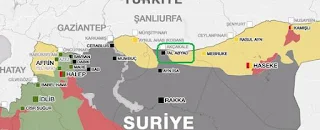
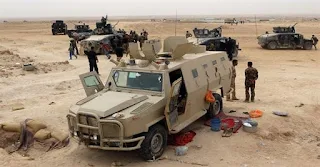
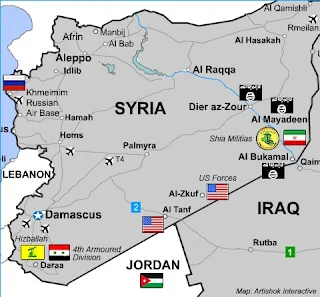
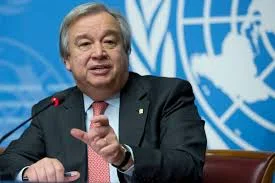

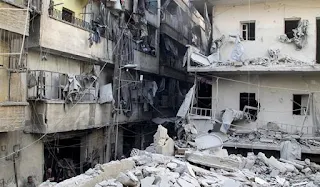
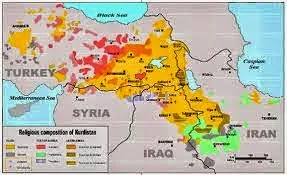

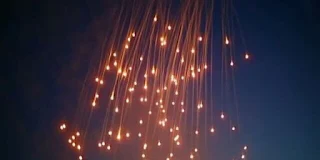
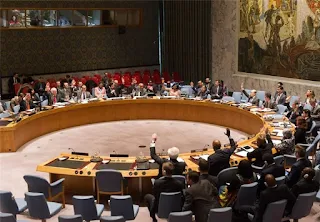



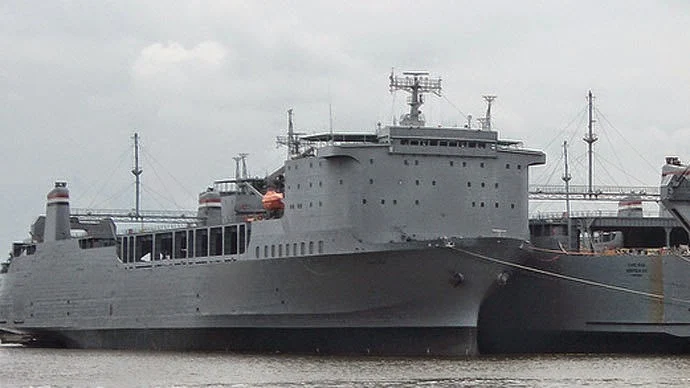




 GR
GR FR
FR DE
DE ES
ES IT
IT RU
RU EU
EU